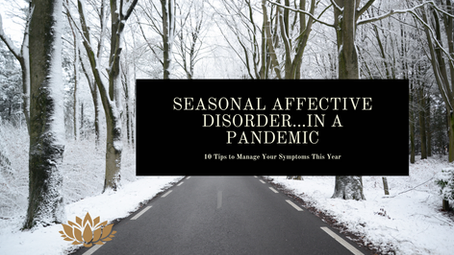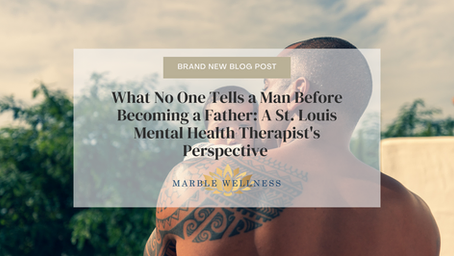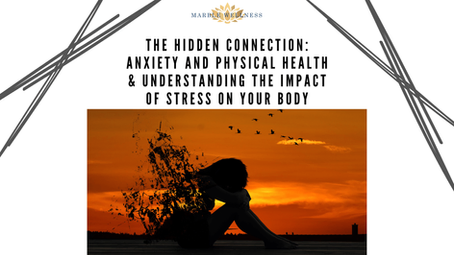
For every 2-3 people that fawn over all things pumpkin spice, there’s another person out there who starts to feel the impending dread of a plummeting mood and the physical and emotional darkness of the months to come. The person who, at the beginning of September-just after the passing of Labor Day weekend-starts to fret about the time change; driving to work in the dark and coming home from work in the dark; and the cold weather.
For some people, these are the negatives of the season. Inconveniences. Aspects of life they’d prefer not to deal with.
For others, these changes present something a little more clinically interfering: Seasonal Affective Disorder.
Seasonal Affective Disorder, or SAD, is not altogether uncommon. However, it (like most psychological disorders) gets tossed around with a little too much looseness in the diagnostic criteria. For the purposes of this blog, the diagnostic criteria aren’t overwhelmingly important. These tips are for anyone who feels like they “take a hit” in the winter months.
But, to cover my ground, and to properly encourage the spectrum of help you deserve to receive if you meet the clinical criteria of SAD, here are the symptoms:
Signs and symptoms of SAD may include:
- Feeling depressed most of the day, nearly every day
- Losing interest in activities you once enjoyed
- Having low energy
- Having problems with sleeping
- Experiencing changes in your appetite or weight
- Feeling sluggish or agitated
- Having difficulty concentrating
- Feeling hopeless, worthless or guilty
- Having frequent thoughts of death or suicide
If these sound like the symptoms of Major Depressive Disorder, you’re thinking correctly! Seasonal Affective Disorder is a type of Depression that occurs at the same seasonal time every year, usually mid- to end- of fall and into the winter months. Less frequently, but still a possibility, people have SAD onset in the spring and it continues into the summer months. SAD may also affect those with bipolar disorder.
If this sounds like you, I encourage a call to your doctor to talk about medication, a call to a therapist for behavioral and cognitive treatment, and the below tips & tricks (but those I do not encourage in the absence of the former two!). If the above symptoms don’t sound like you but you still know your mood, energy, and outlook aren’t the best during the wintertime, read on!
10 Tips to Manage Seasonal Affective Disorder…in a Pandemic*
(*You’ll see that many of this are applicable in years that are not pandemic-laden, also!)
1. Get outside every day even during the winter.
“What?! But it’s cold!” I know: but the fresh air still feels good AND is beneficial! Plus, in St. Louis, it doesn’t get SO COLD until January-ish. And even that “SO COLD” is the type of cold that can be bundled against! So, go get the appropriate layers now (good socks not to be overlooked!), and know you just need to bundle up for about 15 minutes each day.
2. Get outside during daylight hours.
With so many of us working from home these days, there is increased likelihood you can get outside in the middle of the day during daylight hours. Okay, so maybe that’s the same tip as above but my point is, you may be able to get outside when the weather is a bit nicer, and not necessarily first thing in the morning or last thing at night. Use that COVD-silver-lining to your benefit!
3. Make the sunny days non-negotiable to be outside, even for just a few minutes.
Get that Vitamin D when it’s an option! You’re doing your body and brain a big favor. MAJOR favor.

4. Plan a vacation right now for sometime in late January or February.
By then, you’ll have decompressed from the holiday season and the winter will have settled in. And you’ll be sick of it. But researching flights/road trips and lodging for a weekend that is 5 days away, versus one that is 2.5-3 or 4 months away, is probably going to frustrate you and maybe put a vacation outside of financial reach. Planning it now gives you control over destination and length of stay. It gives you lodging options. It gives you some calm that sunshine is potentially going to be in your life. AND provides the beautiful gift of anticipatory excitement…something that has been sorely lacking during COVID.
5. Consider a lightbox.
Now, I haven’t used one of these myself so consider the disclaimer made. (But here’s a link to the Mayo Clinic for a resource that may have a little more weight in this arena: https://www.mayoclinic.org/diseases-conditions/seasonal-affective-disorder/in-depth/seasonal-affective-disorder-treatment/art-20048298)
I’ve lightly read some of the research about these and they can easily be found on Amazon. Basically, you sit in front of a machine that provides Vitamin-D light for about 30 minutes a day and it can help you with some winter blues. *Note: the light box needs a 10,000 lux or higher. Additional notes about lightboxes for those who skipped the above Mayo Clinic link…
Typical recommendations include using the light box:
- Within the first hour of waking up in the morning
- For about 20 to 30 minutes
- At a distance of about 16 to 24 inches (41 to 61 centimeters) from the face
- With eyes open, but not looking directly at the light
6. Get cozy.
In your house. With your friends and family. With your plans. Consider ways of living that bring comfort to your soul. The kinds of things that give you moments similar to when you get all tucked into bed and think “ahhhh, nice and warm and safe.” These are things like your favorite soups; your favorite winter scents in candles and room sprays; a fuzzy favorite blanket and robe that only get pulled out during certain months; etc. These are also activities like baking (even if you claim you aren’t good at it); movie and picnic night in the living room with the whole family; camping indoors; etc.

The Scandinavians call this “Hygge” and their practice and incorporation of it so deeply into their lives is certainly a major part of how they get through so many months of the year with short, short days: https://www.countryliving.com/life/a41187/what-is-hygge-things-to-know-about-the-danish-lifestyle-trend/
7. Work to still create connection.
It’s really important to not get isolated ever, but especially during winter in a pandemic. There are a ton of ways to make sure you’re staying in touch with friends, family, and other people in your social support network but here are a few additional suggestions. Do that baking we talked about above; then create small baggies of goodies and spend a day dropping off to friends and family on their front porch. It’ll make their day and yours! If you don’t bake, consider a large salty snack that can be made in bulk and divvied up then. Plan a virtual wine flight night with your friends. Do a coffee subscription with your besties and you guys all try a new kind of coffee on Saturday mornings and either text or group FaceTime about it. Is it as good as seeing each other in person? NOPE. Does it serve as way to keep the bottom from dropping out? Sure thing!
8. Create some sort of something to do throughout the season.
The thing that keeps coming to mind is creating a rating scale for Hallmark holiday movies. I’m thinking you can rate: casting choice; plot; the first kiss scene; supporting cast; etc. If you’re someone who is feeling a bit braver in quarantine and goes out to eat but stays outdoors, create a rating system for the places with heated tents and patios: ease of reservation; how effective the heater was; other considerations of the restaurant that helped make it a nice experience. Maybe you can choose a type of food and get it delivered from area-restaurants and rank that. My family did this a few summers in a row. We did pizza, burgers, and ice cream. We had a lot of fun and it was a great way to help foster easy conversation between my sister and I, and between two teenage daughters and their parents. Other thoughts include: trying out new hobbies (until one sticks!); trying different board games; learning card games.
9. Completely predictable of me to say but: continue to be mindful of how you’re moving and fueling your body.
Sorry, it had to be said.
10. Keep a consistent routine where you would have one in other seasons, but particularly in the morning.
The predictability of a routine keeps our system tapped into structure, which it needs to rely on to make it through the rest of the day. It’s okay to change your routine between seasons, if something dictates that, but once the seasonal changes are made, stick to them. Routines are a protective factor against anxiety and depression, and that is no different during the winter months.
With these tips, hopefully you feel equipped enough to manage or counterbalance the way Seasonal Affective Disorder impacts you. If you feel you need more support, or would benefit from therapy, feel free to reach out!
Talk to you soon!
Start Therapy for Mental Health in St. Louis
If you live in St. Louis and are ready to improve your mental health, we are here to help.
Contact Us!
Additional Counseling Services at Marble Wellness in St. Louis, MO and Chicago, IL
Counseling services designed to help set you on a path of living a more fulfilled, calm, and happy life.
St. Louis
Our St. Louis team of therapists have a variety of training backgrounds and areas of expertise. We specialize in anxiety, depression, grief, chronic illness, therapy for men, couples, and maternal overwhelm. We can also help new moms with various postpartum concerns, moms in the thick of parenting, and moms with teens. We can also chat from wherever you are in the state with online therapy in Missouri and online therapy in Illinois. No matter where you are in your journey, we would love to support you.
Chicago
Our Chicago team of therapists offer a wide range of mental health services to help our clients through the different challenges and hurdles in their life. In addition to anxiety, depression, grief, therapy for men, and maternal overwhelm, we are specialized in professional burnout, therapy for breakups, and love partnering with working moms.




